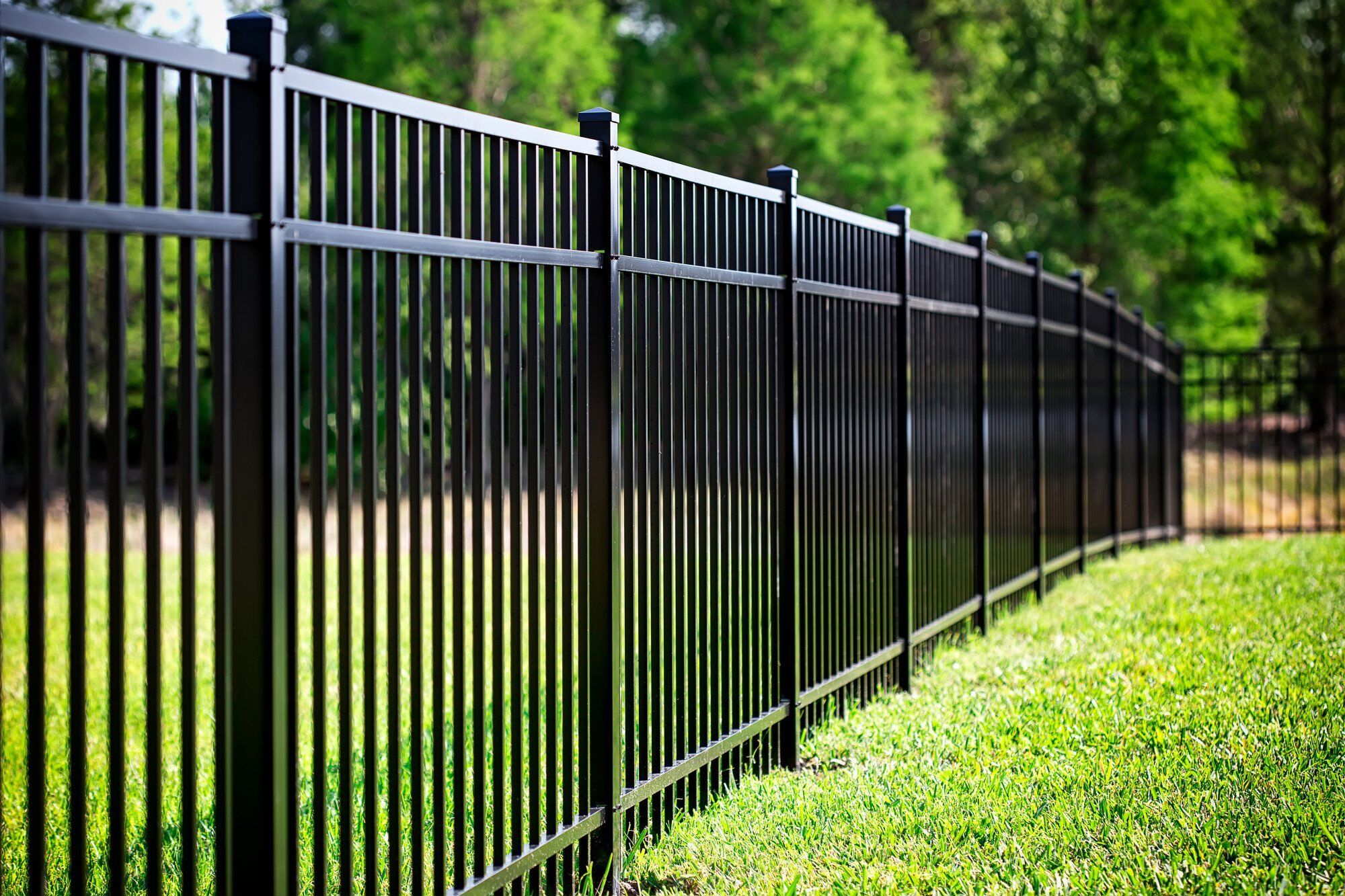All Categories
Featured

Choosing the appropriate secure fencing material is necessary for accomplishing the equilibrium of longevity, aesthetic appeals, and capability that fits your residential property. Wood, plastic, and light weight aluminum are popular selections, each with unique functions that cater to particular needs. Below's a thorough look at the benefits and downsides of these 3 materials.
Timber Fence. Pros:. Ageless Charm: Wood uses a natural, traditional appearance that complements numerous architectural designs. Personalized: It can be repainted or stained in a variety of designs and colors. Affordable: Timber fencings are commonly less expensive upfront than vinyl or light weight aluminum. Eco-Friendly: As a renewable energy, wood is naturally degradable and sustainable when sourced properly. Disadvantages:. Maintenance-Intensive: Needs normal staining, painting, or sealing to shield against weather and bugs. Shorter Life-span: Depending on the kind of wood and environment, it typically lasts 10-15 years. Susceptability to Damages: Prone to deteriorating, warping, and termite damage without proper treatment. Wood is excellent for homeowners that value visual appeals and are willing to invest time and effort in maintenance to extend its life.
Plastic Fencing. Pros:. Sturdy: Resistant to parasites, rot, and weather, plastic keeps its structure in harsh conditions. Reduced Upkeep: Needs little maintenance past periodic cleansing. Lengthy Life expectancy: Plastic can last 20-30 years without considerable wear or damage. Functional Designs: Readily available in different shades, appearances, and styles, consisting of alternatives that resemble wood. Cons:. Expensive Installment: Plastic fences are more expensive to set up contrasted to wood. Breakable in Winter: Plastic can crack in extreme cold climates. Tough to Repair work: If damaged, entire areas may need substitute, which can be testing to match. Vinyl fencing is a terrific choice for those prioritizing longevity and minimal maintenance, also if it comes with a greater ahead of time cost.

Light Weight Aluminum Secure Fencing. Pros:. Rust-Resistant: Light weight aluminum does not corrosion, making it perfect for humid or moist locations. Solid but light-weight: Deals strength without being extremely hefty, which simplifies installment. Low Upkeep: Requires little bit more than cleansing and occasional repainting. Long life: Aluminum fencings can last for decades without substantial damage. Classy Layouts: Typically made use of for decorative purposes, aluminum includes elegance to any home. Cons:. High Initial Expense: Light weight aluminum fences are amongst the more costly alternatives. Limited Personal privacy: Often made with open rooms, they do not obstruct sights or sound. Prone to Damages: While sturdy, light weight aluminum can be nicked or bent with hefty impact. Light weight aluminum is finest fit for those that desire a durable, fashionable fence and do not call for complete privacy.
Making the Right Choice. Each material has its weaknesses and staminas:

Timber is perfect for traditional appearances and eco-conscious purchasers who do not mind maintenance. Plastic benefits house owners seeking a weather-resistant, low-maintenance option. Aluminum is a sturdy, ornamental option for those who want beauty and durability. Consider your priorities-- whether it's cost, look, personal privacy, or upkeep-- and get in touch with a secure fencing specialist to select the material that ideal meets your needs. A well-selected fencing will certainly enhance your residential or commercial property for years to come.
Latest Posts
Discover Oil Changes & More: Complete Repair Options from Montclare Auto Repair
Published May 28, 25
1 min read
Experience WyHy FCU – Top Perks for Your Future
Published May 28, 25
1 min read
Explore Limited-Time Auto Repair Offers in Chicago at Montclare Auto Repair
Published May 26, 25
1 min read